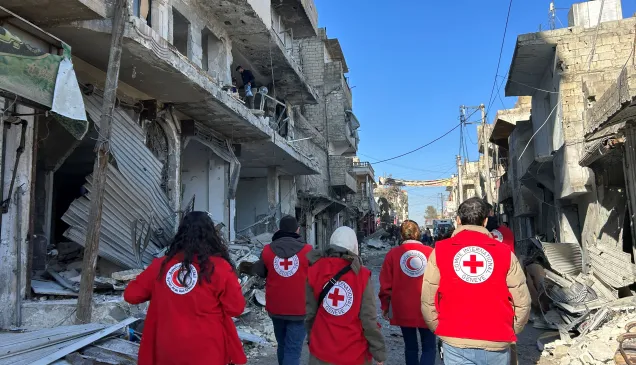Syria: For families of the missing, it is answers, not time, that will heal the pain
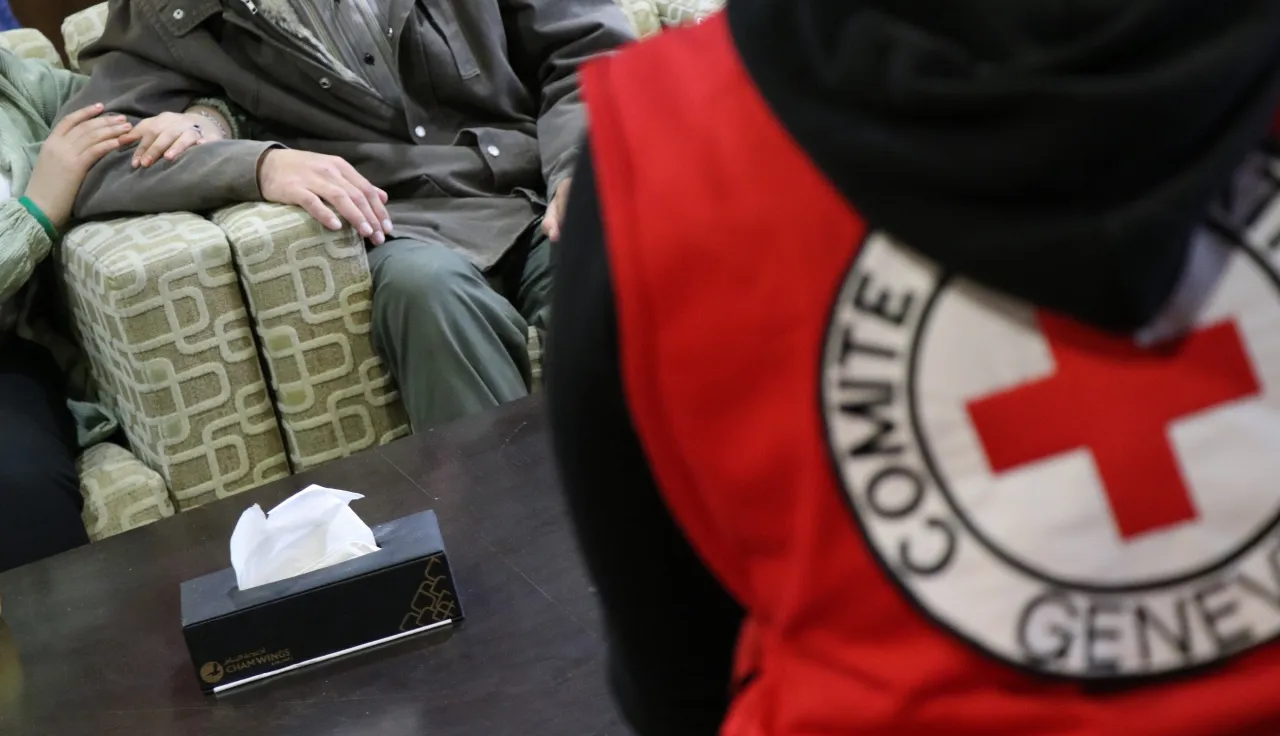
The 30th of August marks the International Day of the Disappeared, a day wherein we commemorate the memory of the missing persons including victims of enforced disappearance, and stand in solidarity with their families.
But this day also stands as a stark reminder of the hundreds and thousands of people missing worldwide. In Syria itself, the ICRC has registered more than 37,000 cases of missing people over the past 14 years. The long years of conflict, situations of violence, disasters and migration that the country has endured would indicate that the numbers are undeniably higher. Families, here as everywhere in the world, still wait for news, counting days without their loved ones. This day and every day we want these families to know that they are not alone, that their loved ones have not been forgotten, and that we will continue to stand by them and support them in finding the answers they deserve.
People who have gone missing have left fond memories behind, lives left interrupted, and families that are still waiting for them, still hoping that the day will come with answers to their countless questions.
For these families, every little thing brings back memories of their missing family members - an empty place at the table, a plant in the backyard, the food they used to like. The words of their missing loved ones are on replay in their heads. The emotional and mental scars won’t heal with time, but neither will their determination to get answers fade. Their hope and strength will stay no matter how long it takes them to learn the fate and whereabouts of their loved ones. Their hope and strength will stay no matter how long it takes them to learn about the fate and whereabouts of their loved ones.
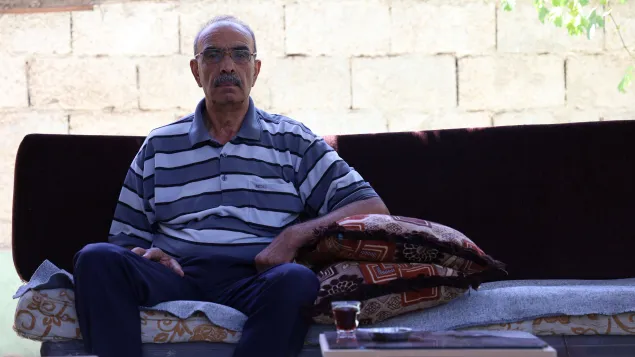
Mohammad’s four sons are missing.
Words can’t describe what I feel. Just remembering them makes me cry. Every question about them reopens the wounds. My only dream is to see them again— even if it is just one of them. Their memory never leaves me. Wherever I go, I see them. When they were here, a phone call was enough—they would come to me immediately no matter where they were. Once, I was stranded in Qamishli, I called them, and they came right away. I can never forget them.
May God help every parent who has lost a child… Imagine the pain of the one who has lost four.
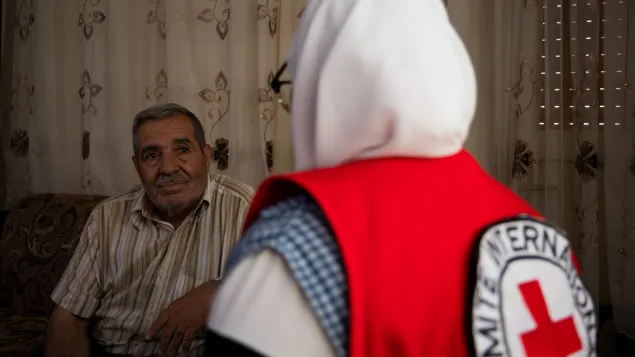
Ahmad’s son has been missing for eleven years.
Eleven years ago, my son went missing. I have not heard anything about him since then. He was the one who supported me, who understood what I needed without words. No gesture could ever repay what he did for me. Life became much harder without him. Deep down, I still believe he will come back. I continue to pray for his safety, and that God is pleased with him—now and always.
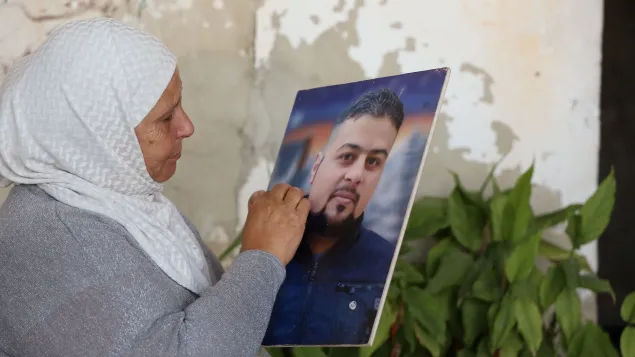
Um Mohammad`s three sons are missing.
When they said the prisoners had been released, I had hope of finding them. The nephews still ask about my sons. My grandson says, "I wish I could see their hands. I would love to see my uncles and be like them. I won't have any cousins; I'll be left alone."
They say a child is little until he grows up, he is sick until he recovers, and he is missing until he returns to his family. I still have hope.
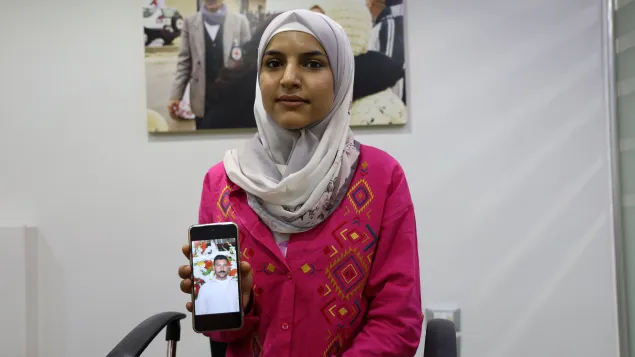
Lana’s father went missing when she was but a mere child of six.
Life without a father is hard. Sometimes I ask myself: Why do I have to live a life without a father, while my friends have theirs around them? It is my right to feel what it’s like to have a father in my life. Sometimes I imagine him coming back home. I would run to greet him, kiss his hand, and talk to him.
When someone wants to propose to me, I wish my father would be there to give his blessing. I don’t like attending weddings because I can’t bear to see a father dancing with his daughter on her special day.
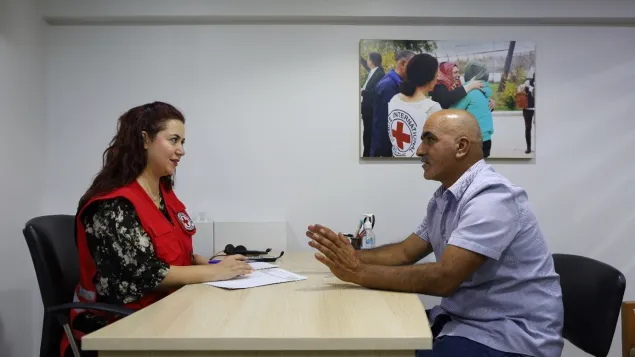
Hasan's son and five brothers have all gone missing.
The hardest moment of all comes on Fridays. We used to look forward to that day—it was the day the whole family came together. It was not just any ordinary day. We would do household chores together or prepare a special lunch to welcome a brother returning from work in Damascus or Lebanon. Everyone made it a point to be home on Friday with our parents.
But today, I sit alone every Friday, overwhelmed by a constant sense of loss… the feeling that something essential in this house has been shattered.
Families wait, living in hope
Just like these families, thousands in Syria are still hoping that one day they will hear from their loved ones– that they will get to hold them again.
The issue of missing people, including victims of enforced disappearance, is one of the most devastating and long-lasting consequences of armed conflict and other violence, disasters and migration. Behind each missing person is a family living in anguish and uncertainty, struggling with the pain of not knowing what has happened to their loved ones.
Families need and have the right to know what has happened to their loved ones. Addressing the issue of missing people is crucial to achieving peace and reconciliation. Unresolved cases can perpetuate trauma, deepen grievances and exacerbate divisions — even long after the violence has ended.
Today and every day, the ICRC stands in solidarity with all families of the missing, and in upholding their right to know about the fate and whereabouts of their missing loved ones.


